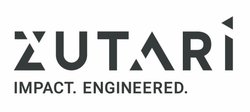Covid-19 is driving an important shift in building-design trends
| Covid-19 is driving an important shift in building-design trends | 58 KB | Download | |
| Yovka Raytcheva-Schaap, Associate, ESD Consulting & Project Management, Zutari | 2.1 MB | Download | |
| According to Zutari, Covid-19 is driving important shifts in designing spaces within buildings | 569.91 KB | Download | |
| Zutari provided ESD (Environmentally Sustainable Design) services for the new Discovery head office in Sandton | 2.96 MB | Download |
For example, designing office fit-outs now involves increased distance between desks, installing protective screens, improved wayfinding to limit occupant and visitor interaction in circulation areas and automation of internal doors to limit surface contact. Proper outdoor air distribution with increased ventilation rates is also required to reduce pathogen build-up in the air.
In terms of infrastructure, many leading global cities are changing the way public transport operates by making a concerted effort to increase alternative mobility – that is, non-motorised transport, including cycling lanes and bicycles, e-scooters and pedestrianising the inner city.
“All of these measures are being taken to ensure the health and well-being of occupants and visitors of buildings and communities at large,” comments Yovka Raytcheva-Schaap, Associate, Environmentally Sustainable Design (ESD) Consulting & Project Management at Zutari.
Essentially, when designing new buildings, project teams should have a deeper appreciation of the contextual characteristics of sites, the location and climatic conditions, the availability or lack of finite resources and the ecological and social make-up of neighbourhoods. Thus the design development can be fully integrated with the organic offering of the sites.
In addition, passive design must be fully explored and implemented as a first step to reduce dependency on utilities, to make real estate more self-sufficient and resilient and to approach net zero performance.
The lockdown imposed due to the Covid-19 pandemic has not only reduced air and car travel, but has resulted in many people working from home thanks to the latest technologies for digitising business and operational processes. Pollution and greenhouse gas emissions have subsequently declined as people now fly and drive less.
“In returning to a ‘new normal’ post Covid-19 world, we must be more appreciative of such alternative ways of interaction, and be more caring towards each other and the environment we live in. Our efforts towards a more sustainable future must be renewed and intensified. As we rebuild those parts of the economy that have been negatively affected, or introduce new industries, it is our responsibility to shape a more sustainable future,” highlights Raytcheva-Schaap.
It is the government’s responsibility, however, to lead the shift towards a decarbonised economy and more inclusive communities. In this regard, the first step would be to remove the impediments confronting the private sector in producing energy from sources other than fossil fuels.
South Africa’s geographic location is such that a much higher proportion of the national energy mix could be attributed to renewable sources. However, the legal and regulatory framework, as well as the government’s procurement policies, need to change to enable such a shift.
In addition, the government should incentivise local capacity and production in the sustainable environment that lead to decarbonising the economy, while creating jobs and uplifting communities. “The government could also set an example by taking a leadership role to implement energy, water and waste -reducing strategies for its buildings and infrastructure,” concludes Raytcheva-Schaap.
Ends
Notes to the Editor
To download hi-res images for this release, please visit http://media.ngage.co.za and click the Zutari link to view the company’s press office.
About Zutari
As engineering consultants and trusted advisors, Zutari co-creates an engineered impact that enables environments, communities and economies to thrive. Few others can match our local capacity, long-standing presence and understanding of the challenges required to operate successfully across various regions in Africa.
We have created an impact across Africa for the past 90 years and remain committed to this continent, making us the perfect partner to those less familiar with working in Africa. We are experienced in international projects and our Global Design Centres allow us to bring world-class solutions to our clients.
As a private management-owned company, our commitment is true and we have vested interest in our clients’ success. Our strong relationships allow us to connect the right expertise, processes and resources to match client’s needs and bring stakeholders that have shared interests together.
We blend the old and the new. We have moved beyond traditional engineering and work collaboratively to integrate technical and creative thinking. This process of co-creation allows us to unearth new opportunities with our clients and partners.
Zutari’s broad collective of in-house, industry-recognised engineering consultants and trusted advisors provide seamless and integrated delivery. This unique ability to offer scaled engagement allows Zutari to solve complex challenges more efficiently.
Grounded in digital engineering, we continuously deliver better results.
Zutari Contact
Rashree Maharaj
PR & Media Advisor
Email: Rashree [dot] Maharaj [at] zutari [dot] com
Tel: (012) 427 2000
Media Contact
Renay Tandy
NGAGE Public Relations
Phone: (011) 867 7763
Fax: 086 512 3352
Cell: 082 562 5088
Email: renay [at] ngage [dot] co [dot] za
Web: www.ngage.co.za
Browse the NGAGE Media Zone for more client press releases and photographs at http://media.ngage.co.za

